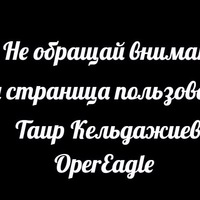
Rules and respect Click the sentences without grammar mistakes. Number of correct answers: 2 The
sport ground could to open soon. Jack may help you prepare for the competition. John might come to the party. You might passed you homework on time. 0
0
 0
0
Ответы на вопрос
 Внимание! Ответы на вопросы дают живые люди. Они могут содержать ошибочную информацию, заблуждения, а также ответы могут быть сгенерированы нейросетями. Будьте внимательны. Если вы уверены, что ответ неверный, нажмите кнопку "Пожаловаться" под ответом.
Внимание! Ответы на вопросы дают живые люди. Они могут содержать ошибочную информацию, заблуждения, а также ответы могут быть сгенерированы нейросетями. Будьте внимательны. Если вы уверены, что ответ неверный, нажмите кнопку "Пожаловаться" под ответом.

Ответ:
John might come to the party.
Jack may help you prepare for the competition.
Объяснение:
 0
0
 0
0

The sport ground could open soon. Jack may help you prepare for the competition. John might come to the party. You might have passed your homework on time.
Sentence without grammar mistake: The sport ground could open soon. This sentence is grammatically correct.
Explanation: This sentence is expressing a possibility or potential future action. The use of "could" indicates that there is a chance for the sport ground to open in the near future. The verb "open" is in the infinitive form, as it follows the modal verb "could".
Sentence without grammar mistake: Jack may help you prepare for the competition. This sentence is grammatically correct.
Explanation: This sentence is expressing the possibility that Jack will assist in preparing for the competition. The modal verb "may" is used to indicate the likelihood of the action. The verb "help" follows the subject "Jack" and is in the base form, as it is not conjugated to match tense or subject.
Sentence with grammar mistake: John might come to the party. The verb "come" is not in the past tense.
Correction: John might have come to the party.
Explanation: The verb "come" should be in the past participle form "come" to indicate that the action (coming to the party) may have already happened.
Sentence with grammar mistake: You might passed your homework on time. The verb "passed" is missing the auxiliary verb "have".
Correction: You might have passed your homework on time.
Explanation: The verb "passed" should be accompanied by the auxiliary verb "have" to form the present perfect tense. The phrase "might have passed" indicates a possibility that the action (passing the homework on time) has happened.
 0
0
 0
0
Похожие вопросы
Топ вопросов за вчера в категории Английский язык
Последние заданные вопросы в категории Английский язык
-
Математика
-
Литература
-
Алгебра
-
Русский язык
-
Геометрия
-
Английский язык
-
Химия
-
Физика
-
Биология
-
Другие предметы
-
История
-
Обществознание
-
Окружающий мир
-
География
-
Українська мова
-
Информатика
-
Українська література
-
Қазақ тiлi
-
Экономика
-
Музыка
-
Право
-
Беларуская мова
-
Французский язык
-
Немецкий язык
-
МХК
-
ОБЖ
-
Психология
-
Физкультура и спорт
-
Астрономия
-
Кыргыз тили
-
Оʻzbek tili

























